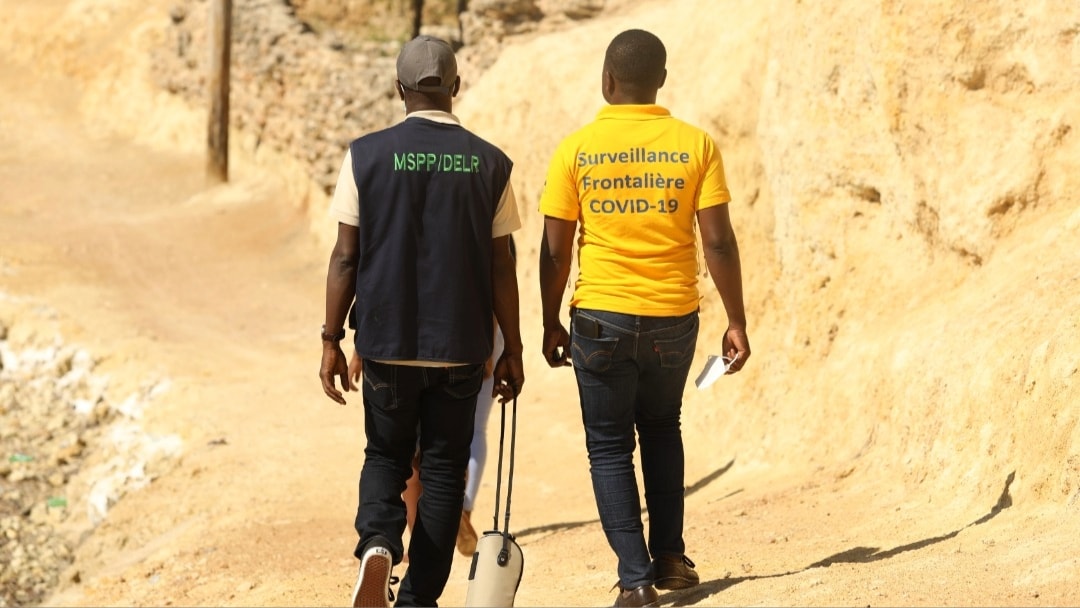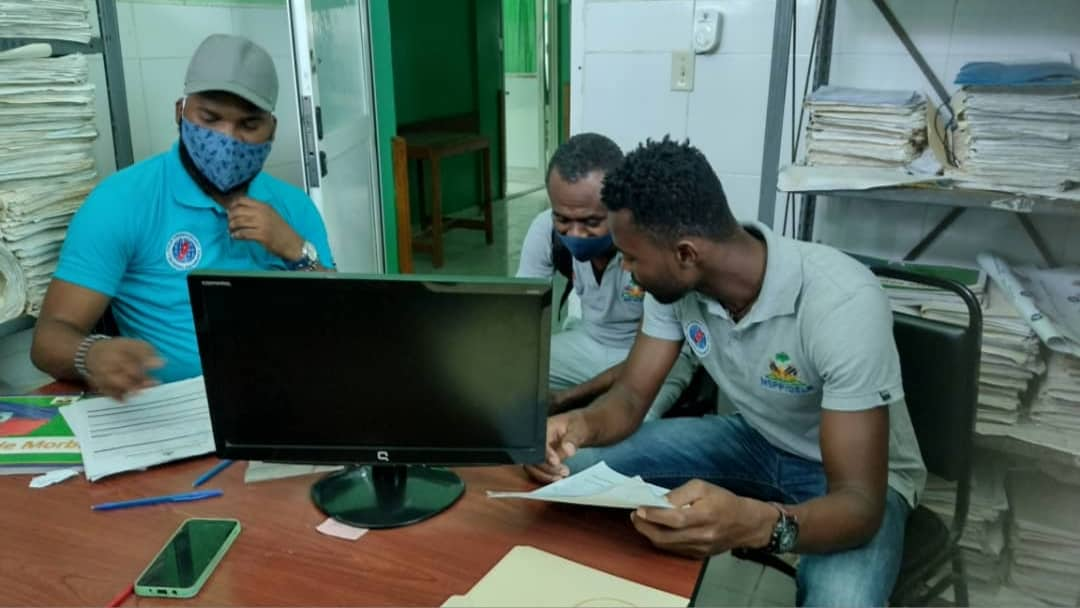At a glance
- CDC's Field Epidemiology Training Program (FETP) equips public health workers with skills in disease surveillance and outbreak investigation.
- Pierre Wilnique, an FETP graduate from Haiti, played a crucial role in his country's response to outbreaks.
- In 2021, he moved to Côte d'Ivoire to establish an FETP, helping strengthen the country's public health systems and effectively respond to emerging health threats.
How the Haiti Earthquake Led to the Creation of FETP

On January 12, 2010, when a massive earthquake hit Haiti, Pierre Wilnique was attending a biblical seminary on the Episcopal Church Campus in the capital, Port-au-Prince. The earthquake caused major damage in the city. Fortunately, neither Pierre nor his family were injured. After the earthquake, Pierre became the coordinator of the Mission Episcopal Church responses for the victims. A year later, he enrolled in the first group of the Haiti Field Epidemiology Training Program (FETP) and has been involved with the program in various capacities ever since.
FETP is a service-based program that trains public health workers in the principles and practices of field epidemiology. Its objectives are to strengthen public health systems around the world by training epidemiologists, or "disease detectives," in disease surveillance, laboratory management, emergency response, and outbreak investigations. To strengthen surveillance and epidemiology capacity at all levels of the public health system, from local to regional to national, the FETP model comprises three tiers: Frontline, Intermediate, and Advanced.
Below is Pierre's personal account of how he became a disease detective.
Becoming One of Haiti's First "Disease Detectives"
I have been with FETP since it started in Haiti in 2011. Prior to joining the program, I was enrolled in the first cohort of the FETP-Intermediate group as a medical epidemiologist. In 2015, I entered the FETP-Advanced level and earned an MPH in Epidemiology from the Central America FETP. After graduation, I joined the staff of FETP-Haiti as a mentor, and in 2018 I became a field coordinator.
What interested me was its "learn by doing" approach and the overall goal to prevent, detect, and respond to the public health problems my country faced. What I enjoy most about being a detective is helping to prevent outbreaks. Among the major outbreaks I worked on in Haiti were acute diarrheal diseases and acute respiratory infections (ARIs), COVID-19, diphtheria, cholera, measles, and malaria.
Moving from Haiti to Côte d'Ivoire to Train New Disease Detectives

In April 2021, I moved to Côte d'Ivoire in Africa to implement the first group of the FETP-Intermediate tier. As field coordinator, I oversee all aspects related to the program. As such, I get to wear multiple hats as a manager, supervisor, coach, mentor, epidemiologist, researcher, logistician, trainer, and evaluator. I help develop and implement the annual work plan, review and adapt the curriculum, coach mentors (who will supervise trainees of FETP-Intermediate) and train the new cohorts. Specifically, I will train Ministry of Health (MOH) surveillance officers in disease surveillance, outbreak investigation, and response activities, in addition to conducting outbreak investigations with them. Even though I have only been in Côte d'Ivoire for a short time, I have already worked on the COVID-19 response as coordinator of the Border Health Surveillance unit.
My FETP training has given me skills to effectively address public health problems. For example, I have helped implement surveillance systems for acute respiratory infections, COVID-19, Zika, and motor vehicle crashes in Haiti. Because I mentored executives of Haiti's Ministry of Public Health and Population and Ministry of Agriculture, I'm confident that our graduates have emerged as leaders in field epidemiology in Haiti. I hope to play that same role now in Francophone Africa.
I am grateful to have been given the opportunity to become an FETP graduate and fortunate to have been able to stay with the program and see it grow in numbers and influence, both in my own country and now in Côte d'Ivoire. I look forward to helping strengthen Côte d'Ivoire's public health systems by training public health staff to be ready for any emerging health threats they will have to face.
